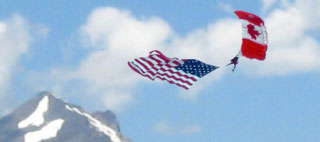How to Get a 3% Raise (with one phone call)
Author: Brad Howland
First Posted: October, 2000
If you are self-employed, you can have a 3% raise tomorrow by making a phone call to Canada Revenue Agency. To do this, you will become a "GST Registrant." You don't have to register for GST unless your gross income exceeds $30,000, but you can if you want to. It makes sense for almost everybody.
Here's how it works:
Step 1 - Register for the GST
Call the Canada Revenue Agency Tax business enquiries line at 1-800-959-5525 (or visit this page for information on how to register by mail, Internet, or in person).
Inform Canada Revenue Agency that you want to register to collect GST, using the Quick Method to calculating GST remittance, and filing annually. The Quick Method is usually the most advantageous for musicians. They can assign you a GST number over the phone, and send you a Quick Method Election form to fill out.
Step 2 - Collect GST on Your Gigs
Give the GST number to all your "contractors," or people that hire you to play. This could be anywhere from symphony concerts to wedding gigs, but not music lessons, which are GST exempt. They will start paying you an extra 7% on every engagement.
Step 3 - Prepare and File the GST Return
This money is known as "GST Collected," but don't spend it yet! You have to save it because you are going to give some of it to Canada Revenue Agency. You need to prepare a GST return each year. The simplest way to do this is to have your tax preparer do it at the same time as your income tax return. You send the government a cheque for part of the 7% collected, the exact amount calculated using the Quick Method. You get to keep the remainder—typically about 3%.
Does it sound simple? It is! But for some reason, many people are nervous about it. Perhaps they worry about the extra financial burden on those who hire them. However, most of your contractors are themselves GST registrants and receive credits for the GST they pay to you. Perhaps they don't want the extra paperwork, but any tax preparer can do the GST return with the income tax return for a reasonable fee.
Having your tax preparer do the GST return makes sense for another reason. The extra 3% is called an Input Tax Credit, and you are required to include it as income on the tax return for the following year. (i.e. the Input Tax Credit for 1998 is received at tax time in 1999, and goes on the 1999 tax return). It can be easier and simpler to let the tax preparer deal with it.
By the way, if your gross income exceeds $30,000 and you haven't registered for the GST, you could get in a lot of trouble. You are risking a major audit of past tax returns. Please seek professional tax help if you are in this situation.
Employed musicians can also receive a GST credit, but it's limited to the GST paid on eligible expenses for employed musicians, and calculated on Form GST-370 of the income tax return.
